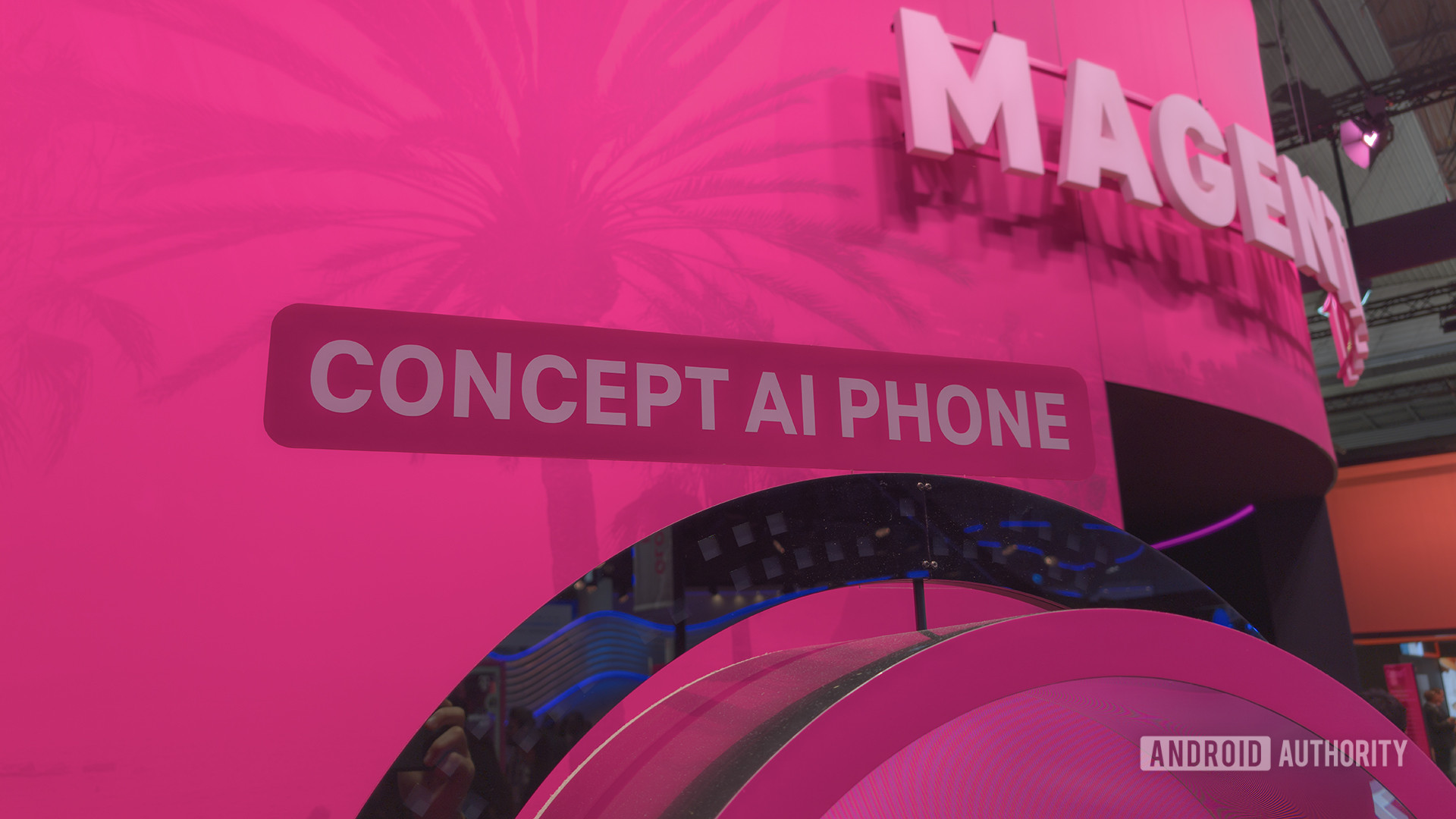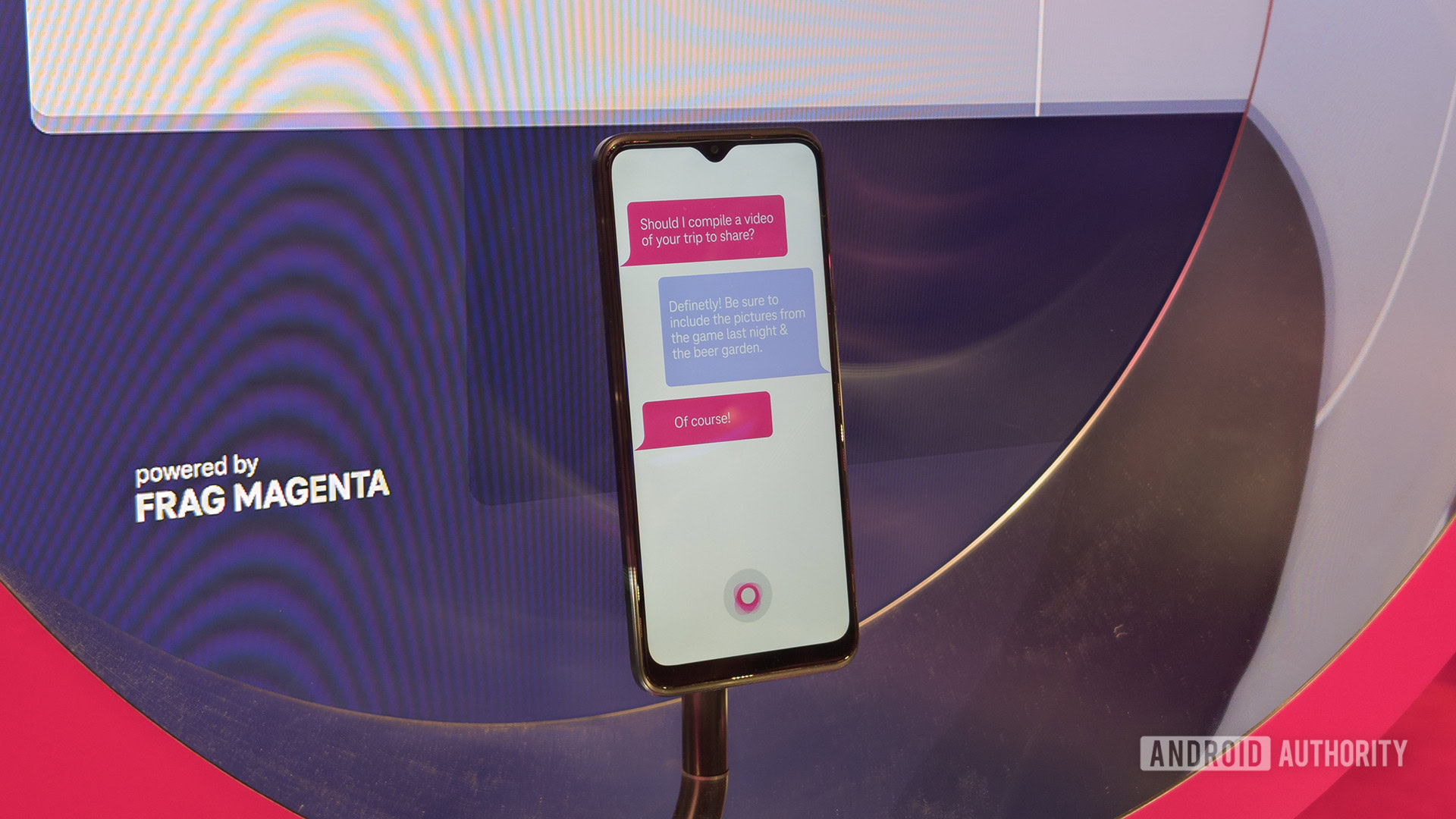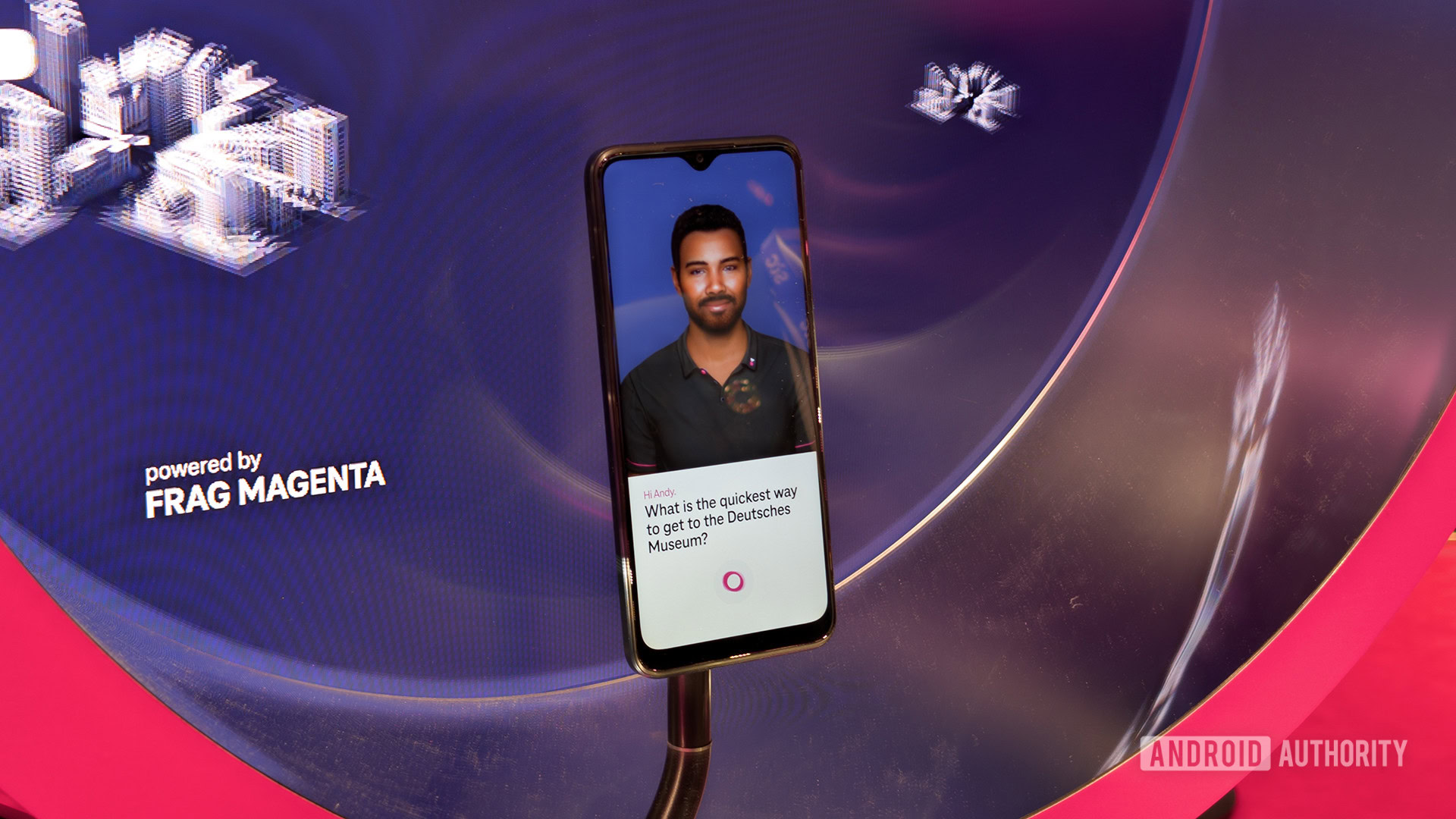
At Mobile World Congress 2024, Deutsche Telekom revealed a concept Android phone wholly based around AI. Essentially, the phone — officially dubbed the Deutsche Telekom Concept AI Phone — uses AI to replace the need for apps. The company sees this as the first step towards an “appless” future.
Now, I know what you’re thinking: using apps is a fundamental aspect of using any phone, whether it’s an Android phone or an iPhone. While that might be true today, in the future, we might be much less reliant on individual apps than we currently are. That’s what makes this phone particularly interesting. Let’s dive in!
The appless future?
C. Scott Brown / Android Authority
Envisioning an appless future might be tricky because we are, at the moment, neck-deep in apps. Everyone reading this probably has 50 or more apps installed on their phone, which is insane when you really think about it. To get you in the right headspace, let’s review a hypothetical procedure for shopping for a product using your phone today.
First, you’re going to need to think about what you want. This might involve some Google searches in a browser app or watching some YouTube videos. Once you have an idea of what you want, you need to hunt for a good brand, which might involve using another app, such as Amazon. You’ll hunt around there for a while, check some reviews, and maybe jump back to Chrome and YouTube to check on outside reviews, too. Finally, you figure out the best product for your needs and realize it’s cheaper from eBay, so you jump over there to buy it. That’s a total of four apps to make one purchase.
The AI phone is attempting to fix laborious multi-app processes such as this. What if, instead of jumping through all these hoops, you could just converse with an AI that would do all the work for you? What if it could access all the information in all the apps that you would have opened and take you step-by-step through everything, no apps required?
How the Concept AI phone works

C. Scott Brown / Android Authority
According to the Deutsche Telekom rep who showed us the AI phone, the system uses both on-device and cloud AI power. Using natural language, you talk to the AI, and it performs tasks by quickly creating temporary “apps” to finish what you need to be done.
With the previous shopping example in mind, let’s review a similar process through the AI system. To start, you would ask the AI a question about what you’re hunting for. The rep did this using his voice, but we learned that you could type the questions instead if you wanted.
Instead of bouncing from app to app, the AI creates tiny ‘apps’ as you need them so you can smoothly move through the buying process.
The first question he asked was what gift he should buy his daughter. After a few seconds of processing, the AI returned a list of products that might be a good gift. The products were arranged in a grid with some core info, such as pricing. Then he asked for reviews of the products, and a few seconds later, he got a list of those. Next, he asked for some videos and received a “best” video along with a scrollable list of clips that might also be worth checking out. Finally, he was ready to buy, and he could hit a checkout button. At no point in the process did he open an app.
The rep showed us this working on several types of Android phones, including high-end and mid-range devices. Because it uses a combo of on-device and cloud-based AI, it can work on pretty much anything, he said. Generally, the system would lean heavily towards on-device power if the phone could handle it or swing things more towards cloud operations if the phone’s processing isn’t powerful enough.
This could work on any Android phone, not just high-end flagships.
The system isn’t just limited to shopping, either. You can ask the AI to do all sorts of things, such as suggest travel destinations, create slideshows using your photos, post to social media, draft a document, and more. Think of all the apps you use to do those things — and then imagine not needing them anymore.
While this sounds great, what if you just need to check an email? Wouldn’t using a standard app be easier/faster than asking AI? The rep assured me that there was no intention to block app usage on the phone. He showed me that you could just back out of the AI system and get to the typical Android home screen with all your Play Store apps.
The vision, though, is to have this AI system be the primary way you interact with the phone. When you power it on, the AI would be the first thing you see.
This is a stepping stone

C. Scott Brown / Android Authority
If this all seems really far-fetched, just remember that a long time ago, you needed to remember phone numbers. Eventually, you stopped remembering phone numbers, but you still needed to remember websites. Nowadays, you don’t really remember many websites, but you do need to remember apps.
Deutsche Telekom — and Brain, the company behind the AI — envisions that ten years down the lane, you won’t remember apps anymore, either. You’ll just talk to an AI, and the AI will do all the work for you.
You don’t remember phone numbers anymore, and you probably don’t remember websites, either. When will you not remember apps?
What most impressed me about this demonstration was that it wasn’t trying to abandon the entire idea of using a smartphone. It was still a typical Android phone, but with a new layer on it that made it easier to use through the power of AI. This made it much more palatable to me than something like the Humane Ai Pin or the Rabbit R1, both of which assume we are ready to move to a post-smartphone world. I don’t think we’re ready for that at all, so the Concept AI Phone seems like a logical stepping stone between where we are now and where Humane/Rabbit/etc. assume we will eventually be.
It goes without saying that there are some lingering concerns with this type of system, though. For example, how can we trust that the AI is giving us a well-rounded selection of choices and isn’t just showing us the products Deutsche Telekom/Brain wants us to buy? How do we know we’re getting the best price? What happens when we move beyond typical shopping into more sensitive situations, such as finding a new doctor? There are lots of things to be concerned about here, but it’s too early to jump to any conclusions. This is just a concept, after all.
There are valid security and privacy concerns here, but it’s too early to grab pitchforks.
Unfortunately, the company couldn’t tell us when it planned to roll out an actual product. Brain does have an iOS app that is similar to what we saw at MWC, but much more rudimentary (and focused only on shopping). For what it’s worth, that app has a lot of negative reviews, with many complaining about buying things and never getting anything shipped or not being able to reach customer support. This makes us a bit uneasy about giving our stamp of approval on Brain, but what we saw demoed for us at MWC seemed solid enough.
Regardless, we’ll just need to wait and see if this ever makes it beyond the concept stage. Even if it doesn’t, I’m intrigued by the idea of AI augmenting my smartphone experience in this way. I am not ready to move to a world without smartphones yet, but I am ready to have far fewer apps on my phone. Even if Brain can’t pull it off, this could represent the direction in which we’re headed.








